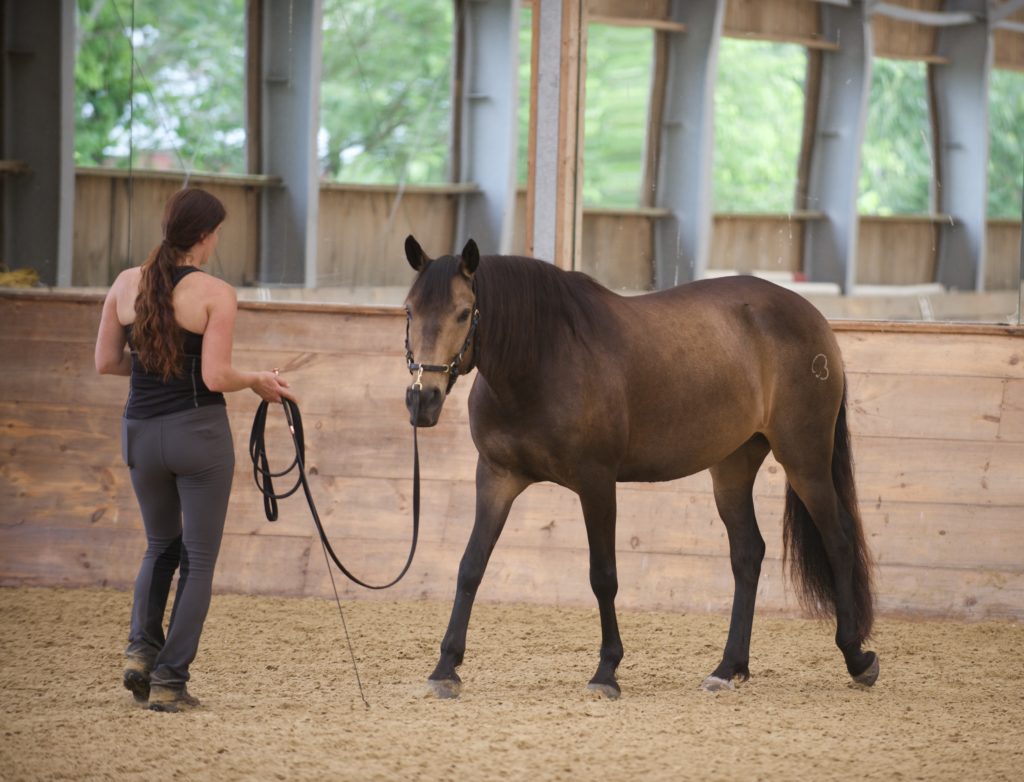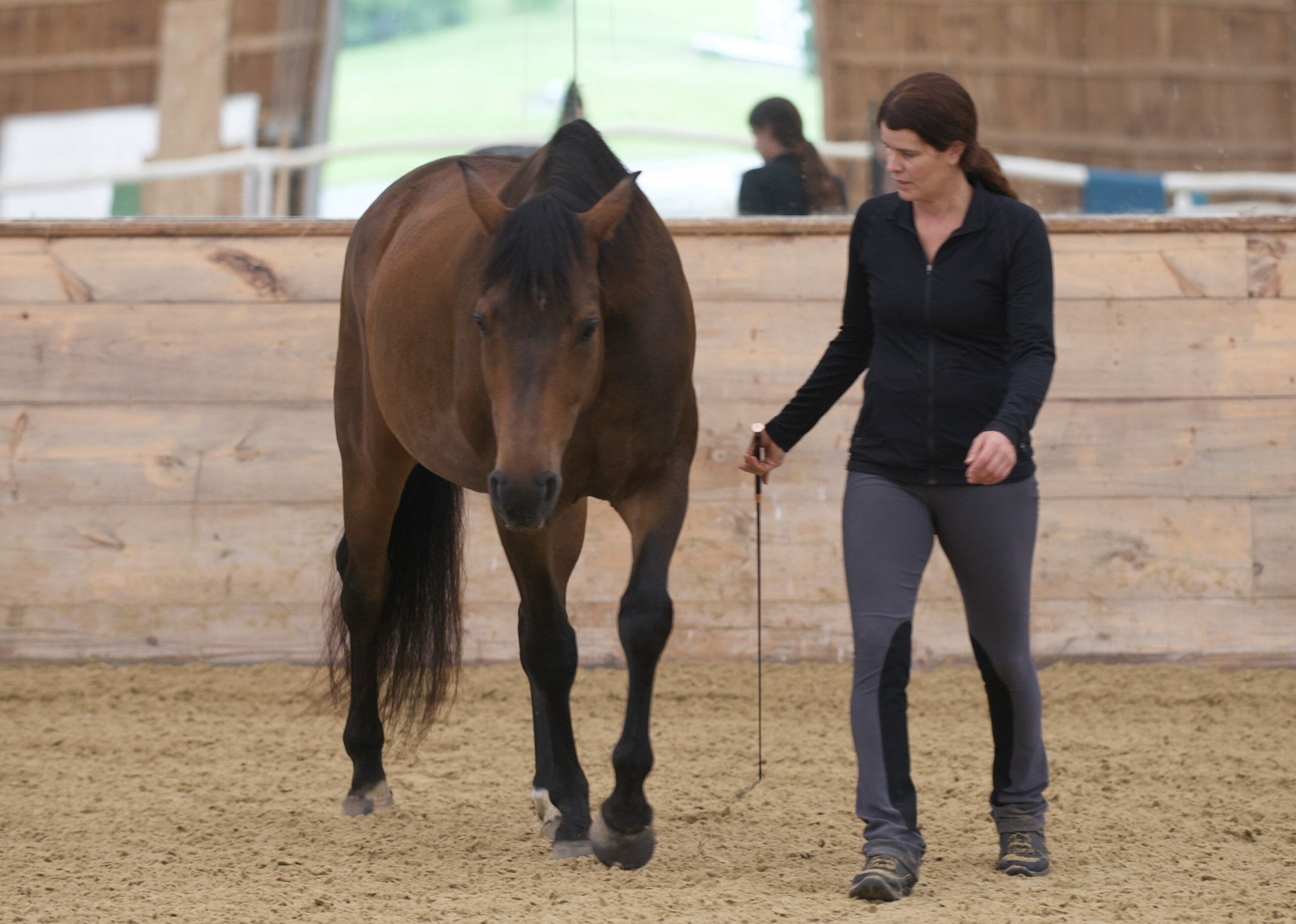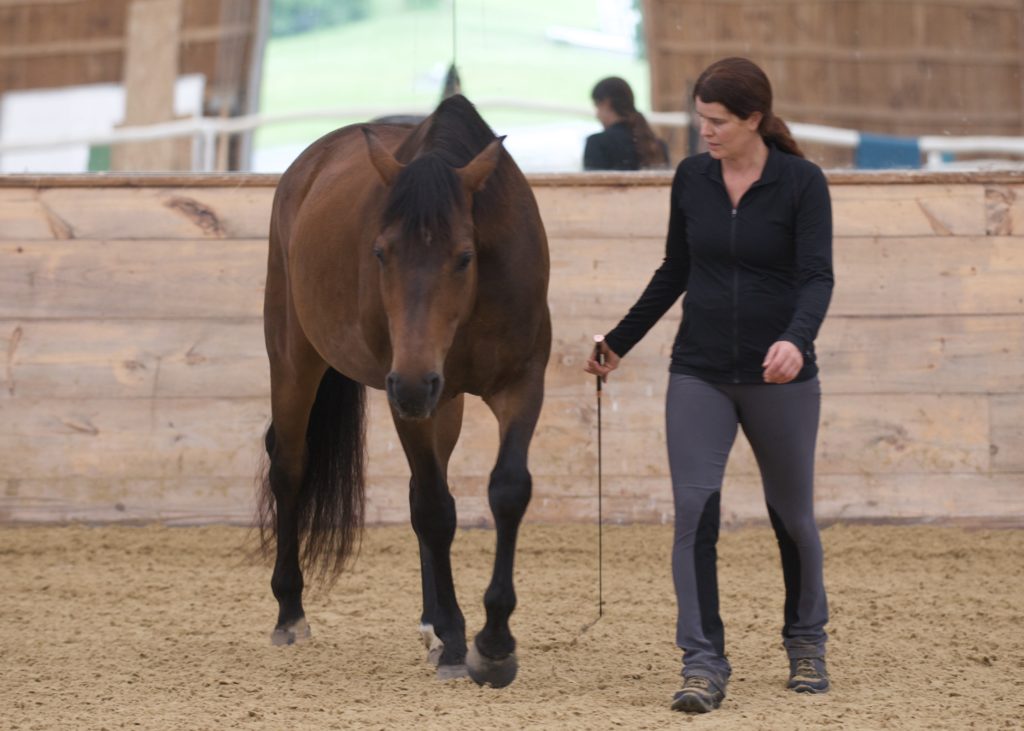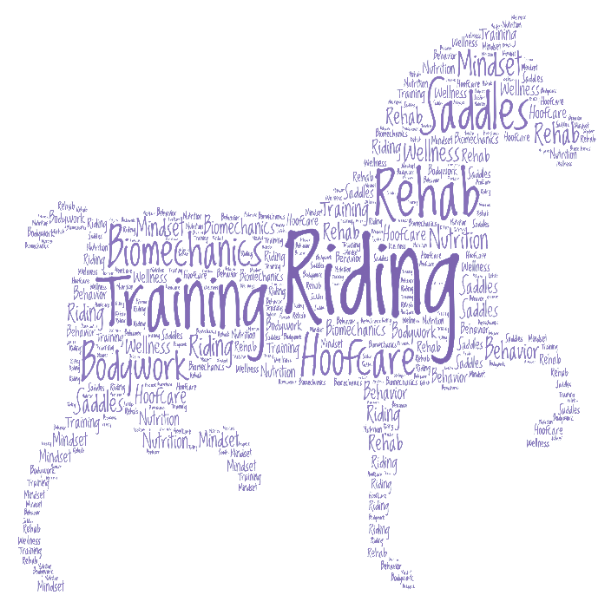
Contributed by Meg Brauch
We hear the term relaxation used frequently in the horse world. There are a couple of variations of the training scale in dressage, but it’s always one of the bottom planks. Chances are, if you sit in on any lesson you’ll hear the word used by many trainers, instructors, and horse owners worldwide, regardless of discipline.
It’s no secret that we want the horse to be relaxed in both body and mind. However, sometimes it’s not so easy. You cannot force or insist the horse to be relaxed so how do we achieve this and why is groundwork an important part of developing relaxation?
In this blog I will discuss some of the signs of relaxation as well as ways to help guide your horse to a more relaxed state. I will also discuss how my liberty work relates to groundwork and developing relaxation and a confident mental state in my horses.
Your Horse’s EveryDay Life
Before I dive into the training aspect of the work, I think it’s important to note that a horse’s daily life is an important part of their mental state. Providing adequate space and turnout, social interaction with other horses, free access to forage, and a balanced diet are an important part of the physical health, but also the mental health of our animals.
Depending on geographic location and available land, many horse owners including myself face challenges with keeping horses in a domestic lifestyle. However, maximizing their ability to live as natural a life as possible is always the first step to bringing your horse into a better emotional state and improving the mindset and relaxation. Horses that are not turned out or that are deprived of social interaction often struggle with finding psychological balance. Evaluating these basic needs should always be the starting point for first addressing challenges with the mental state of our equines.
Increasing Awareness
I generally believe there is a certain level of relaxation and focus that is necessary before you can really address the body of the horse and teach the gymnastic exercises of classical groundwork. However, some horses that are quite unbalanced in the body due to natural asymmetry, conformation or sometimes because of prior training become more relaxed in the mind as you help them find more awareness of their body and a balanced posture.
Improving the physical body leads to a better mental state. I do not think you can fully have one without the other. For some horses developing confidence in their environment and relaxation in the mind is critical before you can address the body and for others, helping them find a bit more balance and better awareness of their body will really help with the relaxation in the mind. So always keep in mind the needs and challenges of each individual horse as they are all unique.

Turning Renfrew away from me at full liberty.
Here, I am moving Renfrew away from me with just a little energy from my core and whip hand.
With that in mind, let’s think about how to influence relaxation, which I will talk about in my next post.






